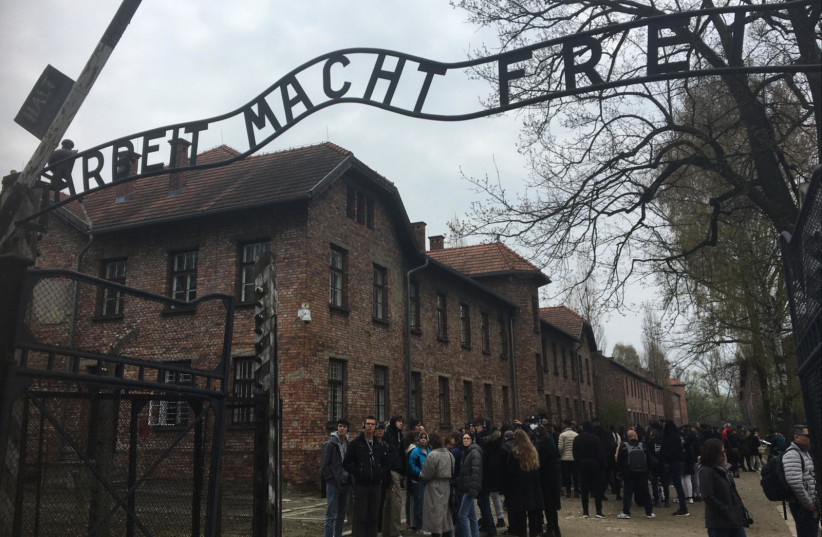Many Israeli high school students go to Poland for one week during their junior year to see the various concentration camps.
Yet, despite their importance, controversy surrounds these trips as it's natural for teens to joke around when they're away from the camps. Another issue people raise is the question of if money should be spent on these trips or should it instead be used to help the few survivors who are still alive.
There's now a fair solution to this dilemma: Virtual tours.
New Israeli technology enables people to take a virtual tour of the concentration camps at Beit Ha'edut i.e.The Testimony House, a museum in Moshav Nir Galim near Ashdod.
The project was presented at a conference titled The Tools of Here and Now in Teaching about Then: New Technologies in Education about Auschwitz and the Holocaust which took place June 27-29 in Oświęcim, Poland, where several major international Holocaust museums presented new developments.

What museums were chosen for the new program?
Beit Ha'edut was chosen as one of the few Holocaust museums in the world, and the only one from Israel, to present new technology at the conference.
A delegation presented to attendees the innovations introduced at the museum in the past year, centered on a virtual reality project with Israeli technology, which gives museum visitors a haunting, in-depth tour inside Auschwitz-Birkenau.
The tour takes place using virtual reality (VR) glasses, which show the participant visually and tangibly how the Nazis worked in the camp, along with exposure to various places in Auschwitz and photographs that have never been seen before.
Museums presenting at the conference included the USC Shoah Foundation: The Institute for Visual History and Education based in Los Angeles, the Anne Frank House in Amsterdam, the Bergen-Belsen Memorial, the Sobibor Museum and more.
Rachel Rosenman Ofer, CEO of Beit Ha'edut presented the project to the museum directors. She said that Beit Ha'edut and the State of Israel were privileged to present these advanced technological developments for perpetuating the memory of the Holocaust to numerous participants from different countries around the world.
Ofer added that as in any field, the challenge of commemorating the memory of the Holocaust needs to be adapted to younger generations. The new museum project, which is part of the tech revolution the world is going through, meets this challenge.
